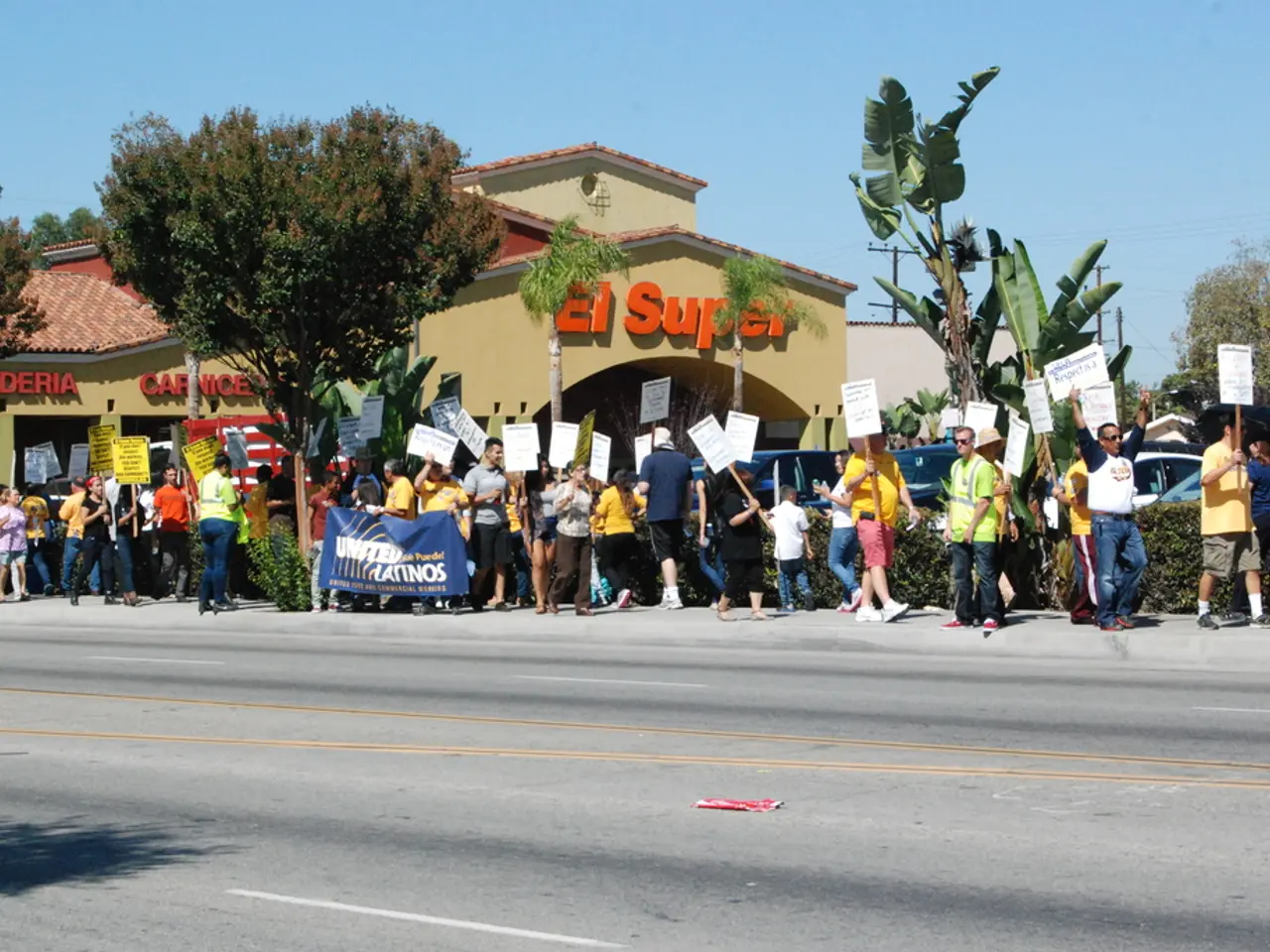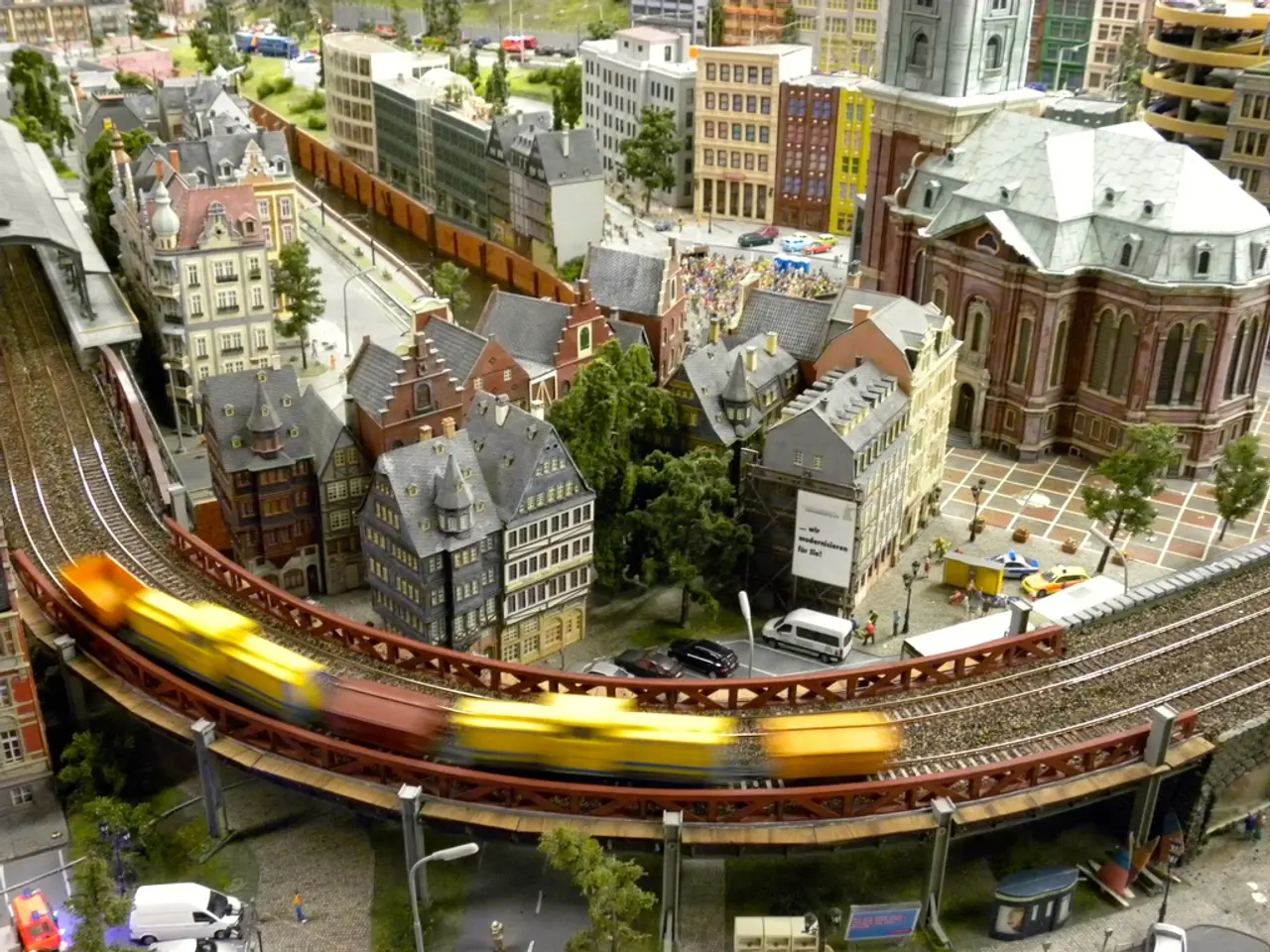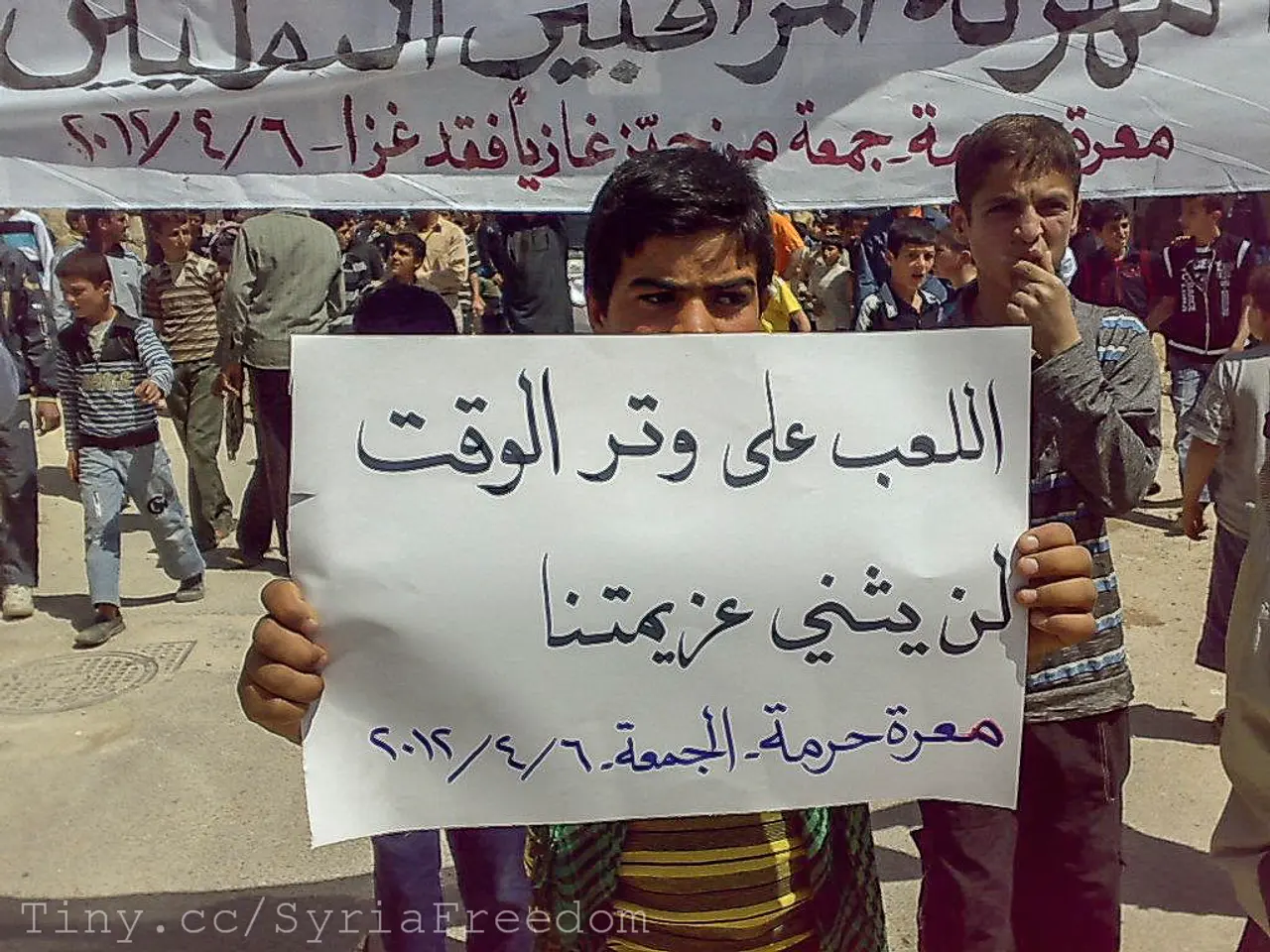Is the recently announced capital city of Indonesia, Nusantara, aligning with the president's long-term strategic plans?
In the heart of Southeast Asia, there is ongoing uncertainty about the future of Indonesia's new capital city, Ibu Kota Negara (IKN) Nusantara. Despite President Prabowo Subianto's recent announcements and funding allocations, political and budgetary signals indicate ambivalence and reprioritization that fuel doubts about the project's long-term status.
President Prabowo has publicly reaffirmed his commitment to the project. He expressed hope for Nusantara as Indonesia’s political capital and confirmed continued development, aiming for government branches (executive, legislative, judicial) to be established by 2028 [1][5]. The allocated budget has been increased and unblocked after an initial drastic reduction in early 2025 [1].
However, political doubts remain. For instance, the 2025 Independence Day was celebrated in Jakarta rather than Nusantara, raising questions among political elites and lawmakers about the project’s future commitment [3][4]. Prabowo’s presidential instruction reaffirms Nusantara as a cross-administration strategic initiative, but conspicuously, Nusantara does not appear among the top five strategic priorities in the National Medium-Term Development Plan (2025–2029), with focus shifting to food security, defense, and social programs—Prabowo’s signature policies—suggesting a lower priority for Nusantara [3].
The NasDem Party urged Prabowo’s administration to make a clear decision on Nusantara’s fate, signaling political pressure and concerns over fiscal constraints and potential waste of public funds if indecision persists [4]. On the other hand, Nusantara Capital Authority head Basuki Hadimuljono affirmed no moratorium on construction and plans to accelerate development phases, highlighting ongoing investment inflows and scheduled completion phases, including legislative and judicial complexes by 2028 [1][5].
Reports persist of indigenous Dayak communities being excluded from meaningful participation and consultation in Nusantara's construction. Land reclassification has occurred without free, prior, informed consent (FPIC), and deforestation in buffer zones has increased [6]. The success of the IKN Nusantara mega-project depends on good governance, including the integrity of its institutions, inclusivity in its development, and the foresight of the nation's leaders.
Construction of the presidential palace, the central administrative core, and 47 apartment towers for civil servants in IKN Nusantara has reached around 80%. Over 42 companies, mostly domestic, have committed more than 62 trillion rupiah across housing, healthcare, and logistics projects in IKN Nusantara [2]. The state budget for the IKN's housing and government office projects through 2029 is 48.8 trillion rupiah, approximately US$2.97 billion [7].
This article was first published in Fulcrum, ISEAS - Yusof Ishak Institute's blogsite. Notable contributors include Julia Lau, a senior fellow and coordinator of the Indonesia Studies Programme, and editor, Fulcrum, and Yanuar Nugroho, a visiting senior fellow at ISEAS - Yusof Ishak Institute, Singapore and senior lecturer at the Driyarkara School of Philosophy, Jakarta, Indonesia.
[1] Prabowo reaffirms commitment to IKN Nusantara, allocates more funds (2025) [2] Investment inflows in IKN Nusantara reach 130 trillion rupiah through private-public partnerships (2025) [3] National Medium-Term Development Plan (RPJMN) 2025–2029 prioritizes food security, defense, and social programs over IKN Nusantara (2024) [4] NasDem Party urges clear decision on IKN Nusantara's fate (2025) [5] IKN Nusantara to house government branches by 2028, says Basuki Hadimuljono (2025) [6] Indigenous Dayak communities excluded from IKN Nusantara construction (2025) [7] State budget for IKN's housing and government office projects through 2029 (2024)
- The NasDem Party has expressed political pressure and concerns over the future of IKN Nusantara, urging Prabowo's administration to make a clear decision, citing fiscal constraints and potential waste of public funds.
- As a strategic initiative, IKN Nusantara is included in President Prabowo's presidential instruction, but it does not appear among the top five strategic priorities in the National Medium-Term Development Plan (2025–2029), which focuses on food security, defense, and social programs.
- Reports suggest that the success of IKN Nusantara hinges on good governance, including ensuring inclusivity in its development, as concerns have arisen over indigenous Dayak communities being excluded from meaningful participation and consultation in its construction.







